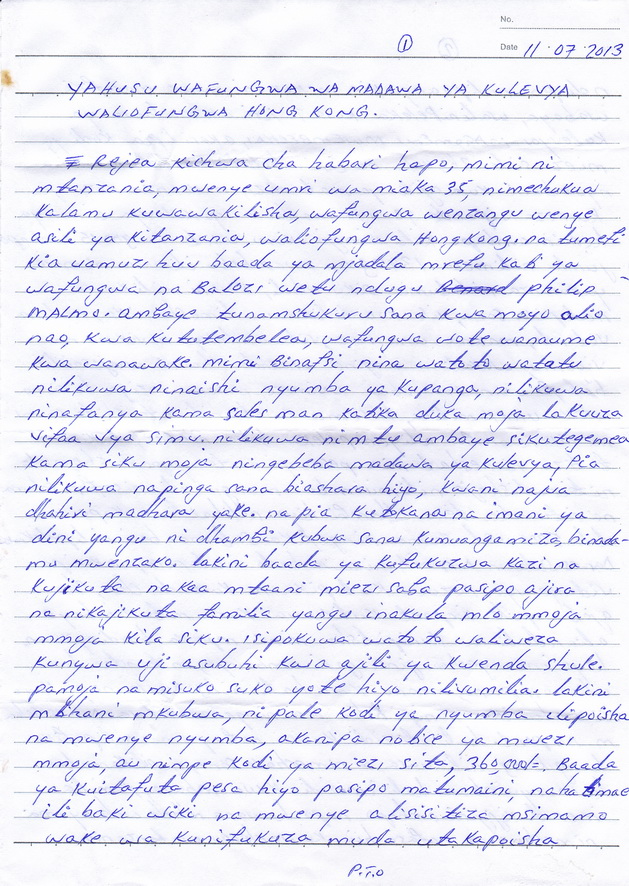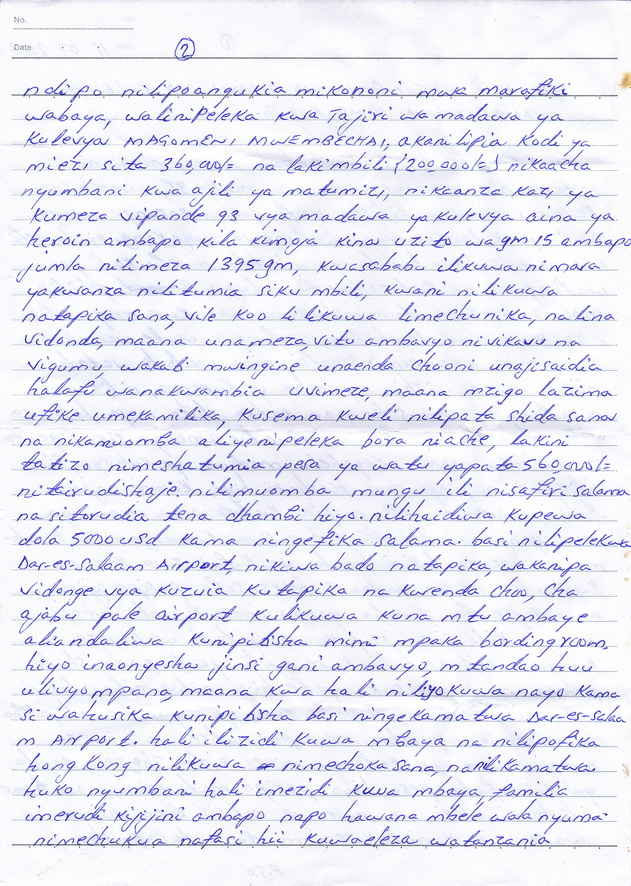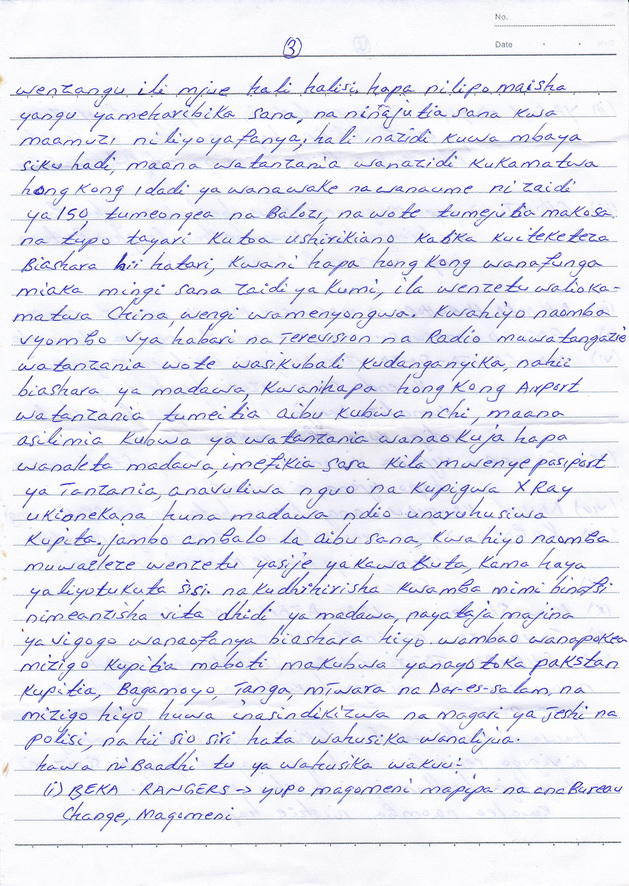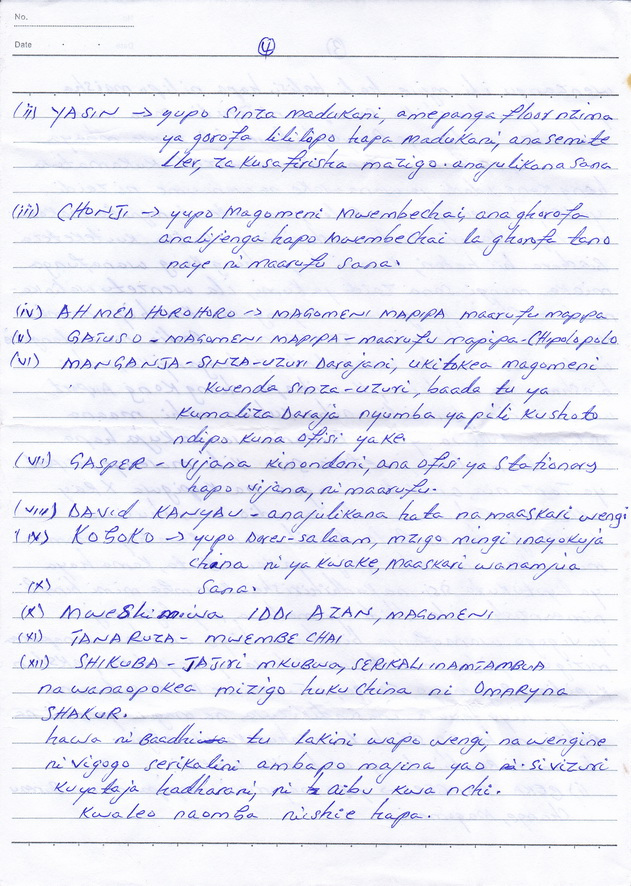Course Name: ICT and Pedagogical Development 2013 - C
Category: C
Study Period: 16 months
Application opens: Open
Deadline Application: 2013-10-01
Target Countries: Afganistan, Bangladesh, Cambodia, Kosovo,
Bolivia, Ethiopia, Liberia, Rwanda, Sierra Leone, Tanzania, Uganda and
Zimbabwe.
However the programme is also open for other countries with potential for and a wish to develop ICT and pedagogics.
Programme Objectives
The overall objective of the programme is to contribute to capacity
building and the start up of change processes in the participants´
organisations in order to integrate ICT in educational policies and
strategies at all levels of the educational system.
The programme shall provide knowledge about ICT as an instrument to
create improvements in administration, leadership and pedagogical
development as well as concrete methods and tools for designing,
planning and implementing a change project in the educational sector
including aspects of digital inclusion and gender. In this way,
participants are expected to act as change agents.
The specific objectives of the programme are to provide the participants with:
- An overview of how ICT can be integrated in educational policies and
strategies based on good practices in low and middle income countries
as well as Sweden and other industrialized countries
- Increased knowledge of the possibilities of using ICT as a tool for pedagogical development and to promote "Education for All”
- Increased knowledge of how ICT can be applied in the national educational system
- Increased knowledge of the importance of ICT for a more efficient
and transparent administration of educational institutions, in order to
improve work procedures, documentation as well as internal and external
communication
- Increased knowledge of methods and tools for organisational change in general, and in the educational system in particular
- Expanded international and national scientific networks for the exchange of knowledge and experience of ICT in education
Contents
Change Project
A central component of the programme is the participant's own
Change Project addressing a relevant problem within the scope of the
programme. The Change Project should be something the participant and
his/her organization want to implement during the period of the
programme. An outline of a proposed Change Project (or a project idea) is to be submitted together with the application form. It will form part of the basis for selection of participants to the programme.
The project should be endorsed by the participant's organisation.
Modules
The programme is divided into five interlinked modules:
1. Visions for learning; International, national, and regional policies for education.
The module provides an analysis of policies and visions for
educational systems and lifelong learning. Specific focus will be on the
role of ICT in these policies. The participants will make an analysis
and compare policies from various countries and organizations at
national and local level as well as relevant policies of the UN and the
EU.
2. Managing change in education; Leadership, processes, and evaluation
The module will provide knowledge of using ICT to promote new
pedagogical approaches in the transition from teaching to learning, as
well as knowledge about how to use leadership and communication skills
to handle change in the organisation. The module will provide
understanding of how ICT may influence the planning and administration
within the educational sector and tools for impact analysis of the cost
of ICT.
3. Interactive learning environments and digital inclusion
The module will give the participants a deeper knowledge of
the new forms of interactivity which is offered by ICT. It will cover a
number of different models for learning. The module will also deal with
the "digital divide” and provide exposures and methods for achieving
digital inclusion.
4. Support and tools for change
The module includes work on a Change Project in the
participant’s home organization. The Change Project plays a central role
in the programme and in this module the knowledge acquired in the other
modules will be applied. The module also covers methods such as project
management and social networking to support the process of change.
Programme Structure
Phases
Phase 1 - Preparation
The participants will get distance support in defining and
developing their Change Projects. Interactive modules for web based self
studies will be made available on the learning platform.
Phase 2 – Scheduled Programme in Sweden, 3,5 weeks
During the training period in Sweden participants
will be exposed to Swedish and international knowledge and experience of
ICT in education. Interactive lectures and professional exchange
dialogues will be combined with excursions, study visits and group work.
Extensive support will be provided by the mentors for developing the
participants Change Projects.
Phase 3 – Intermediate Consolidation
Once back in their organizations, participants will continue
anchoring their Change Projects in dialogue with colleagues and other
stakeholders before starting the implementation. Web-based tools for
communication
will be used for networking, peer review and for interactions with
and support from the mentors. Also other means of interactions will be
used, e.g. website, phones and skype.
Phase 4 – Regional Phase, Scheduled Programme, 1 week
The regional phase, will take place in one country
in Africa or Asia. During this session all the participants will report
on the progress of their Change Project with feedback from the mentors
as well as other participants. Lectures and study visits will provide
opportunities to learn from local and regional experiences.
Phase 5 – Continued Support Phase
Through the web there will be ongoing interaction between
participants, their institutions and the mentors. During this phase the
Change Projects will be implemented, evaluated and reported on. The
participants will get distance support in defining and developing their
Change Projects. Interactive modules for web based self studies will be
made available on the learning platform in order to provide the
participants with basic knowledge in various subject areas.
Date and place for the scheduled parts
The total duration of the programme is 16 months (phase 1–5) out of which 4,5 weeks are scheduled sessions.
The training component in Sweden will take place March 18 – April 10, 2014. The programme will be held in Karlstad and Stockholm.
The regional session will be held in November 2014 in one selected country in Africa or Asia.
The programme will finish in spring 2015.
Learning processes
The programme includes a diversity of pedagogical methods such as
lectures, group works, forum discussions, case studies, study visits,
mentor support and extensive use of ICT. Planning, implementation and
evaluation of the Change Project will provide continuity to the
programme over the 16 months.
Management and staff
The training programme is carried out under the management of LIFE
Academy, Karlstad, in cooperation with Stockholm University, Department
of Computer and Systems Sciences.
Participation
Target regions:
The countries invited with first priority to this programme are:
Afganistan, Bangladesh, Cambodia, Kosovo, Bolivia, Ethiopia, Liberia, Rwanda, Sierra Leone, Tanzania, Uganda and Zimbabwe.
However the programme is also open for other countries with potential for and a wish to develop wind power.
Target Group:
The programme is primarily intended for decision makers, planners,
teachers, managers and specialists qualified to participate in reform
processes of strategic importance for the educational sector in the
country.
The candidate should hold a position with mandate to initiate and
implement changes in the field of ICT in education. Candidates
representing government organizations, educational institutions, private
companies or NGOs at national, regional or local level are welcome to
apply. The candidates should hold an academic degree or having
equivalent knowledge and have at least five years of professional
working experience.
The number of participants is limited to 25.
The outline of the Change Project together with the commitment of
the home organization to support the participant and actively involve in
the implementation of the project will be of crucial importance in the
selection of participants.
To achieve a good gender balance, applications from qualified women
are especially welcome. If selected, the participants are required to
attend all scheduled parts of the programme. Due to the character of the
programme, family members are not allowed to accompany participants to
the programme.
Language requirements
The training will be organized and conducted in English and
consequently high proficiency in the English language is required.
Candidates with other mother tongues will have to certify their
proficiency in English.
Application Process
Closing date for application is December 15, 2012
Application is to be made on one of the special forms attached and
include a recent photograph and all required information and documents.
The applicant must be nominated by her/his organisation or institution.
When necessary, the application is to be approved by the official
nominating authority in the country. The application is to be submitted
to the nearest Swedish Embassy/Consulate. If there is no Swedish
Embassy/Consulate in the applicant's country, the application should be
sent directly to the Programme Secretariat. Selected applicants will be
notified by e-mail or telefax.
Cost of Participation
Sida will cover all training costs pertaining to lectures,
literature, documentation, study tours and certain social activities as
well as accommodation and food. International travel costs to Karlstad, Sweden in phase 2 as well as to the regional session in phase 4 will be covered by Sida.
Accommodation
Accommodation will be arranged for the full duration of the scheduled parts in Sweden and India.
Visa
Participants are responsible for obtaining all visas necessary
during all phases of the programme. The visa should be valid for the
whole period of the programme and the passport should be valid for three
months longer than the entry visa. The costs for obtaining visas are
carried by the participant.
For more information, this website offers Swedish visa information:
http://www.migrationsverket.se/info/start_en.html
Insurance
All participants are covered by a group insurance while on scheduled parts of the programme.















